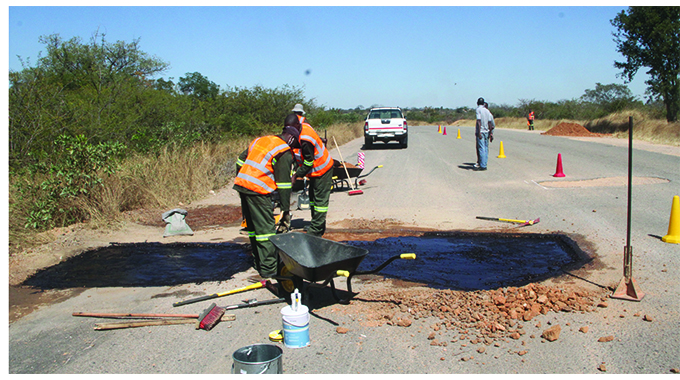Zimbabwe Red Cross Society celebrates volunteers

Midlands Bureau Chief
The ZIMBABWE Red Cross Society volunteers are being celebrated for having risked their lives since the outbreak of Covid-19 by helping communities with food hampers, temporary shelter, PPEs, medical equipment as well as providing water and sanitation services.
The contributions of volunteers came into focus on Saturday as the world observes the World Red Cross and Red Crescent Day.
The day is being dedicated to staff and volunteers of the International Red Cross and Red Crescent Movement that are reaching and supporting people affected by Covid-19, floods, food insecurity, access to first aid and basic, quality but affordable health care and other humanitarian crises.
In Zimbabwe, alongside the challenges of the Covid- 19 pandemic, the Zimbabwe Red Cross Society staff and volunteers have been supporting communities during food insecurity and cyclone induced floods by providing water and sanitation services, building capacity for emergency preparedness and response, raising awareness on non-communicable diseases in schools and tertiary institutions, providing information on youth sexual and reproductive health rights, running schools safety programmes, providing first aid and health care services as well as Personal Protective Equipment for frontline health workers and medical equipment such as ventilators.

Pupils from Kwekwe and Gweru schools during a quiz and debate competitions in Gweru on non-communicable diseases
Some of the work that they have done include restoring and maintaining family links for separated families. Mr Elias Hwenga, ZRCS Secretary General said in the past year, Covid- 19 brought fear and disrupted the lives of people across the world and Zimbabwe has not been spared.
“This has changed the lives of people who were already affected by food insecurity and floods and also had limited access to quality but affordable medical services.
“But one thing has not changed: the support provided by Zimbabwe Red Cross Society’s volunteers. They have been in communities every day helping with food hampers, temporary shelter, PPEs, medical equipment, water and sanitation services, restoring and maintaining family links as well as raising awareness on risk communication and community engagement on Covid -19,” he said.
Their commitment, he said, is unstoppable.
It’s estimated that one in every 636 people in the world is a Red Cross or Red Crescent volunteer. Together, the Red Cross and Red Crescent have reached 650 million people with health and hygiene promotion activities and more than one million people were connected with their families through phone or video calls, written or verbal messages.
Mr Francesco Rocca, the president of the International Federation of Red Cross and Red Crescent Societies (IFRC) said there are many serious global challenges to address such as Covid-19, the climate crisis and support for people on the move.
“But today we have some 14 million reasons to celebrate our unstoppable volunteers. Every individual act of kindness and support matters – regardless of how small it may seem. This collective local action has a massive global impact every day,” he said.
Mr Peter Maurer, the president of the International Committee of the Red Cross (ICRC), said the Red Cross and Red Crescent staff and volunteers are on the front line of every crisis, sometimes at risk to their own safety.
“They work relentlessly, with and for communities to prevent and alleviate human suffering in the worst of situations, in armed conflict, disasters and other humanitarian crises,” he said.
Meanwhile, (ZRCS) in partnership with the Danish Red Cross is holding a quiz and debate competitions in Gweru on a non-communicable diseases (NCDs) awareness drive targeting school pupils.
The debate being held at Thornhill High School in Gweru has pupils from the host school, Manunure High School from Kwekwe, Stanley, CJR and Lundi Park from primary schools from Gweru.
Winners will represent the province during the national quiz and debate competitions to be held in due course.
RCS Youth Development Coordinator Mr June Munyongani said primary and secondary school pupils need to receive lectures on NCDs.
“Tobacco use, physical inactivity, the harmful use of alcohol and unhealthy diets all increase the risk of dying from an NCD. Detection, screening, and treatment of NCDs as well as palliative care, are key components of the response to NCDs,” he said.











Comments